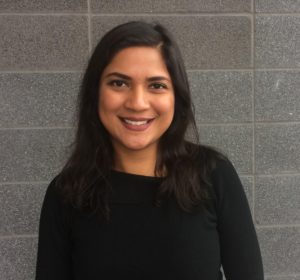At a time when many cultural forces continue to stand in the way of women pursuing careers in the science and technology fields, Dr. Shabana Amanda Ali is proving to be a great role model for young female scientists.
A self-professed “multidimensional student of life”, her work speaks volumes of her level of commitment to the field of research science. After witnessing the decline of her grandmother’s health due to osteoarthritis, Ali decided to dedicate her career to finding a solution for the debilitating disease.

In an interview with Ali done by Guyanese Girls Rock, Ali talks about her background, passion for research, and the significant contribution she is making to the STEM field.
Ali said her family moved to Canada from Guyana when she was the age of two. She has since returned to Guyana twice, where she still has relatives and the house where her father was raised.
Currently residing in Toronto, Ontario, Canada, Ali completed a Bachelor of Science degree at the University of Toronto in 2007. She then pursued a PhD in Medical Science, also at the University of Toronto. After completing her PhD in 2014, Ali completed her first Postdoctoral Fellowship at Western University in London, Ontario, Canada. She is currently pursuing a second Postdoctoral Fellowship at the University Health Network in Toronto.
“I am a scientist pursuing research in arthritis, a degenerative disease of the joints that causes pain and disability. My approach to research is unique since I have a background in both basic science (analyzing genetically modified mice) and applied research (conducting interviews with arthritis patients). I have dedicated the past 10 years of my career to discovering the underlying causes and potential treatments for osteoarthritis,” she noted.
Her inspiration behind pursuing her field is due to her passion for knowledge. A career in research has allowed Ali to maintain a persistent quest for knowledge. She is excited to go to work each day knowing she will learn something new, that she is surrounded by extremely talented people, and that her research might improve the care of arthritis patients.
“I chose to focus my research on arthritis because I watched the toll this disease took on my grandmother. Suffering from arthritis for over 40 years now, she has lost much of her function and independence. Unfortunately there is no cure for osteoarthritis and this truly motivates me to do what I do – improve the way in which arthritis care is delivered in order to prevent others from having to go through what my grandmother goes through daily,” the doctor recalled.
Ali has received multiple awards over the course of her studies, including the Canadian Institutes of Health Research Kirkley Postdoctoral Fellowship in Musculoskeletal Health Research and Innovation in 2015 at Western University. She has also received over $100,000 in competitive awards and scholarship in support of her research over the past 10 years.
The award-winning scientist’s long-term goal is to have an independent research programme with an interdisciplinary focus on arthritis. She plans to use her unique skillset to bridge gaps between basic science and applied research in order to improve translation of research findings from laboratories and clinics into communities. Ali believes that the breadth of experience she brings to her work, from both her professional and personal life, gives her the capability and motivation to achieve this goal.
In addition to her research, Ali is an active volunteer with the Arthritis Society in Toronto. She also recently authored a scientific article titled: “Evaluating the design and reporting of pragmatic trials in osteoarthritis research, published in Rheumatology, Volume 1, Issue 1”.
Her encouragement to youths is: “I would share with others some truly valuable advice that was once shared with me (by a random older woman sitting at the table beside me in a food court) – don’t be discouraged. When you encounter people (or even your inner voice) telling you that what you’re trying to do can’t be done, use it as motivation to prove them (or yourself) wrong. Work hard, stay focused, and surround yourself with people who inspire you to be your best self. Be positive and collegial with everyone you encounter, because in science as with many careers, your network will help you succeed.”
You can follow Dr. Ali’s journey on twitter @Amandality as she continues to make huge strides in her research to find a cure for osteoarthritis.
For the full interview with Dr. Ali, visit http://guyanesegirlsrock.com (Guyana Times Sunday Magazine)



